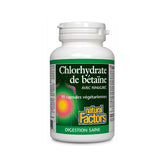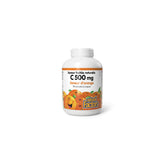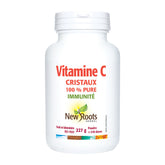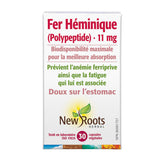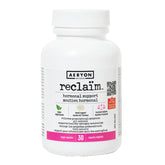Anemia is defined as a lack of hemoglobin in the blood. Hemoglobin is responsible for transporting oxygen to tissues, contributing to energy production..1, 3 Hemoglobin also gives blood its familiar red color..1 As a result, people with anemia can be pale and tired, short of breath and cold.1 depending on severity.3
You may already know all this, since anemia is one of the most common conditions in the world.2 In fact, the WHO estimates that 30% of women aged between 15 and 49 are anemic, and 37% of pregnant women are as well.2
The different types of anemia
There are many different types of anemia: don't think that all forms of anemia are simply iron deficiency (although this should always be considered), as they can have different causes and treatments depending on the cause.
There are 3 main mechanisms which help us to understand the causes:
Blood loss anemia
This refers to simple menstrual bleeding or "abnormal" bleeding elsewhere in the body: digestive tract, urinary tract or following an accident or surgery.1, 3
Anemia due to lack of red blood cell production
This includes iron-deficiency anemia, athlete's anemia, pernicious anemia, etc..1, 3
This refers to bone marrow that is unable to produce sufficient red blood cells, generally due to a lack of necessary nutrients such as iron, amino acids and certain B vitamins such as B2, B9 and B12.1, 2, 3
Hemolytic anemia
Much rarer is anemia caused by excessive destruction of red blood cells, known as hemolytic anemia. This refers to the premature and uncontrolled destruction of red blood cells by the bone marrow, spleen and liver.
Anemia: the naturopathic approach
I'd rather not go into the mechanisms, symptoms and diagnosis of anemia, as these are more the domain of conventional medicine. If you think you may have a health problem, it's important to discuss it with your doctor, who will advise you on the tests needed in your situation, and possibly obtain a diagnosis.
In naturopathy, our strength lies more in prevention, optimizing the absorption of key nutrients in food and/or supplements, and understanding the individual as a whole to work on modifying the terrain. All in close collaboration with medical practitioners.
Naturopathy offers a number of tools for treating anemia caused by a lack of red blood cell production, also known as iron-deficiency anemia.
This article will therefore focus on these elements.
Iron absorption
Iron is a micro-nutrient with a very particular metabolism. Although essential to the body's proper functioning, it can be dangerous in excess.4, 8 Indeed, its pro-oxidant nature can cause functional disorders in cells, accelerating aging.4 What's more, there is no excretion route for iron from the body.8 Its absorption is therefore tightly regulated according to need, via a multitude of transport proteins.8 Dietary absorption is generally between 25% and 10%, depending on the case.4 Which isn't very much.
In view of the potential danger of iron supplementation, self-supplementation should not be undertaken without medical advice.
Some people associate fatigue with iron deficiency, but there may be many other reasons for feeling tired. That's why it's so important to consult your doctor.
Lhe absorption of iron can also bes digestive capacity.the body. An important factor in its absorption is the stomach's ability to produce sufficient gastric acid.4 For some people with digestive disorders, or simply sluggish digestion, the naturopath should first focus on the stomach's ability to loosen proteins and extract iron optimally. In naturopathy, this is called individualizing and working the terrain.
Once released from the proteins, the iron must be reduced to integrate the mucous membrane in the small intestine.8 This is where vitamin C comes into play, as it helps reduce ferric iron to ferrous iron, thus enabling its absorption.8
In fact, 100 mg or more of vitamin C increases the absorption of heme iron, as well as protecting against iron oxidation by recycling it once oxidized.4
Anemia and iron deficiency: what to eat?
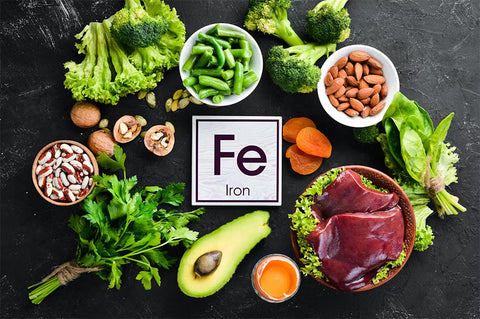
As usual, diet is of paramount importance! It's all about maximizing the intake and absorption of iron, vitamin C and B vitamins.
There are 2 types of iron in the diet: heme iron and non-heme iron.
Sources of heme iron
Heme iron comes from animals, notably red meat. It is much better absorbed by the human body. Its absorption is estimated at 25%..4
Non-heme iron sources
Non-heme iron comes from plant sources such as lentils, certain cereals and green vegetables. It is less well absorbed. Its absorption is estimated at 16%.4
The liver
A food of choice that contains them all, including heme iron, but which is very much in vogue, is liver. Like us, animals store iron and vitamin B12 in their livers. This makes it a very rich food in these nutrients. Liver also contains vitamin A in the form of retinole (which few foods contain), which is excellent for intestinal integrity and even one of the elements to consider when optimizing gastric acid.4
The liver remains an organ of detoxification and contains, even biologically, metabolic waste. It is therefore imperative to always take it organically.
To a lesser extent than liver (which is the great champion of iron sources), all red meats are excellent sources of iron and also contain vitamin B12.
Among the plant foods that contain non-heme iron, we can count on all green vegetables, especially leafy greens such as kale, Swiss chard, spinach, collard greens... Although their iron content is lower and less absorbed, green vegetables contain the vitamin B9 necessary for hemoglobin production.
Calcium-rich foods or supplements, tea, coffee or other tannin-rich foods, as well as certain medications, can reduce the absorption of dietary or supplemental iron.6, 8
It is therefore preferable to take it at different times of the day.
Iron deficiency: natural supplements to consider
According to the Fédération des médecins omnipraticiens du Québec, up to 70% of patients leave their treatment within a few days because of side effects such as constipation.6 It is therefore preferable to start with a smaller dosage and see how it is tolerated before increasing.6
You also need to consider the form of iron used in medical supplements or those purchased over the counter, as they are not all equivalent.
In fact, the supplements frequently prescribed by doctors (the famous red pills) are 300 mg ferrous sulfate tablets that provide 60mg of elemental iron. The cost is quite low, and according to the federation ofdecins omnipraticiens du Québec, it is well tolerated. Absorption is around 20%.6
It takes about 2 months of supplementation to correct anemia, and up to 6 months to replenish the body's iron reserves.6
Complex of iron and B vitamins
My favorite duo is vitamin B complex and iron complex from Pure Lab Vitamins. The combination of 23 mg carbonyl iron and 100 mg vitamin C seems very well tolerated and absorbed.
The University of Lynchburg conducted a study on this form of iron in marathon athletes with results superior to the ferrous sulfate supplement. According to the study, carbonyl iron contains 98% elemental iron, and its absorption is faster and causes less digestive upset.9 Vitamin C was not included in the study.
Why the complex rather than B12 alone?
Vitamin Bs are like a train: when one car is missing, the others may also be missing.
What's more, several B vitamins are directly or indirectly involved at different levels:
- B2 riboflavin9 Increases hematological response to iron supplementation.4
- B6 pyridoxine: supports healthy hydrochloric acid production.4
- B9 folic acid: Helps bone marrow produce red blood cells..3
- B12 cobalamin: with folic acid, helps bone marrow produce red blood cells.3
All-in-one iron supplements
Haem iron polypeptide
New Roots offers a low-dosage, easily absorbable supplement with vitamins C, B9 and B12: heme iron polypeptide.
Iron is a serum iron polypeptide, and although its cost is higher, it may be the best option for someone who has difficulty tolerating iron supplements. Its small dosage of 11 mg is virtually 100% absorbed.6
Multi-iron
The new Alterra iron formula iron formula also addresses the health of the liver, which contributes to iron reserves, and is the only one to contain some of the copper needed for iron metabolism.8
Iron Factors with B12
Iron Factors with B12 from Natural Factors offers a higher dosage of iron than others, with 35 mg ferrous fumarate plus C-B9, B12, manganese and liver extract (see non-medicinal ingredients). Tolerability is similar to ferrous sulfate, but absorption is 33% instead of 20%.
The importance of vitamin C

Whichever iron supplement you choose, it's best to take it all at once, once a day, always at the same time, and with a source of vitamin C. If you also need B vitamins, you can take them at the same time, but also at a different time of day.
B vitamins are best taken with food.5
The Fédération des médecins omnipraticiens du Québec recommends bedtime to avoid interactions with food and/or medication and maximize absorption.6
Some people may wish to prevent or maintain their iron levels simply with vitamin C by eating dietary sources of iron.
I prefer here vitamin C in the form of ascorbic acidbecause it helps support optimal gastric acidity, which in turn supports the whole digestive process, including the breakdown of proteins in which iron is hidden, and the absorption of vitamin B12.7
New Roots offers vitamin C powderwhere you can easily adjust the desired dosage.
Natural Factors has thought of the child in you, by offering you a chewable form of Vitamin C.
For someone with a sluggish digestive system, you could stimulate general absorption (of iron, but also of everything else) with a plant complex.
Or, depending on the case, with hydrochloric acid.
In the case of a woman with very abundant measurements, pain or the presence of a fibroid, it is important to support the key nutrients, but we should above all think about the cause of the problem by supporting the healthy detoxification of estrogen aith a product such as Reclaïm by Aeryon Wellness.
New in Quebec, 1 capsule per day is recommended. Fibroids and painful menstruation may be linked to poor estrogen metabolism..7
In conclusion
In conclusion, there's a lot more to say on this subject, but basically: support digestion to optimize absorption of key nutrients such as iron and B vitamins, in the diet or through supplementation. Choosing a supplement that causes you as little discomfort as possible, while maximizing results are among the things to consider.
About the author
Marie-France Trudelle, Certified Naturopath
In-depth knowledge of :
- Nutrition and dietary supplements
- Stress management and sleep
- Physical activity and movement
- Massage therapy
References
- Marie B Elaine N. and Hoehn Katja, Human anatomy and physiology, Fourthéditions, éditions du renouveau pédagogique, 2010. p.
- https://www.who.int/fr/news-room/fact-sheets/detail/anaemia#:~:text=Anemia occurs in pregnant women and their babies.
- https://www.merckmanuals.com/fr-ca/accueil/troubles-du-sang/anémie/présentation-de-l-anémie
- Andrée-Anne Hatin et cie. Orthomolecular Nutritherapy, IESN, Iron Section, 2024
- Lecompte, Michel, Nutrithérapie orthomoléculaire, IESN, 2016
- Le médecin du Québec, Volume 48, Number 11, November 2013
- Guénette, Lise, Mineralogram, IESN, 2016
- Murray, Bender, Botham, Kennelly, Rodwell, Weil, Harper's Biochemistry, 4 eme édition, Édition de Boeck. 2011, P. 570-573.
- https://digitalshowcase.lynchburg.edu/cgi/viewcontent.cgi?article=1240&context=utcp







